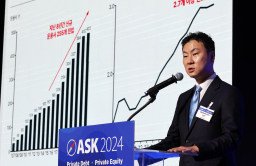-
KOSPI 2577.27 -2.21 -0.09%
-
KOSDAQ 722.52 -7.07 -0.97%
-
KOSPI200 341.49 +0.02 +0.01%
-
USD/KRW 1396 -2.00 0.14%
Small firms emerge as prime targets of management disputes in Korea
Leadership & Management
Small firms emerge as prime targets of management disputes in Korea
The Korea Chamber of Commerce warns against moves to strengthen the fiduciary duties of the board of directors
By
Feb 10, 2025 (Gmt+09:00)
2
Min read
News+

Small and medium-sized enterprises (SMEs) accounted for the majority of disputes over corporate management control in South Korea last year, with the number of cases up 18.4% from the year prior, according to the Korea Chamber of Commerce and Industry (KCCI).
The number of public disclosures related to fights for management control, including legal battles, reached 315 involving 87 listed companies in 2024, as written in a KCCI report released on Monday.
That compared to 266 cases involving 93 companies in 2023.
The report, titled “The characteristics and implications of recent corporate management disputes,” is based on filings submitted to the electronic disclosure system, or DART, of the Financial Supervisory Service.
In terms of the number of disclosures, 2024 saw the highest in five years.
SMEs made up 67.8%, or 59 out of the 87 companies involved in the management feuds. By comparison, only six companies under big business groups were embroiled in such conflicts.
"Small and medium-sized enterprises can be targeted for management control with relatively small investments,” said an official of the KCCI, led by SK Group Chairman Chey Tae-won.
“For those with a simple ownership structure, external intervention in management becomes easier. With limited human and funding resources to respond to management control attacks, they often become targets," he added.
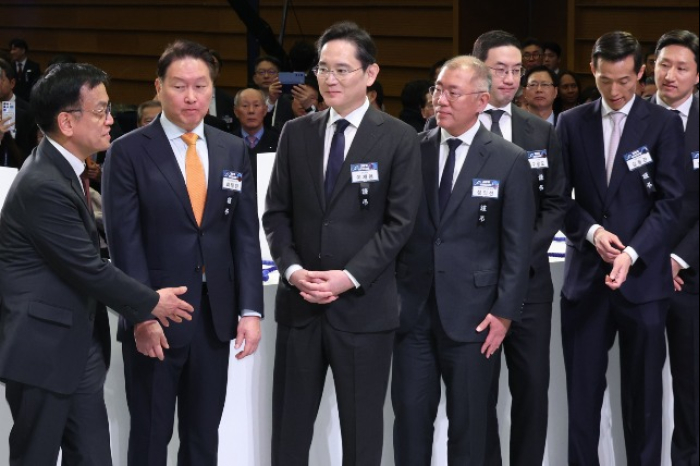
With the rise of activist funds and buyout firms, a higher number of South Korean companies have become targets of unwanted hostile takeover attempts, or have been entangled in management fights, as is in the case of Korea Zinc Inc.
Yet management feuds and unfriendly takeover bids are expected to further increase in Asia’s fourth-largest economy amid growing demand for higher corporate valuation and governance reform.
COMMERCIAL LAW REVISION
The KCCI warns that an amendment to the Korean commercial law to add a clause on directors’ fiduciary obligation to act in the best interests of shareholders will expose a greater number of companies, particularly SMEs, to management disputes.
The government is discussing a commercial law revision to strengthen the fiduciary duties of the board of directors.
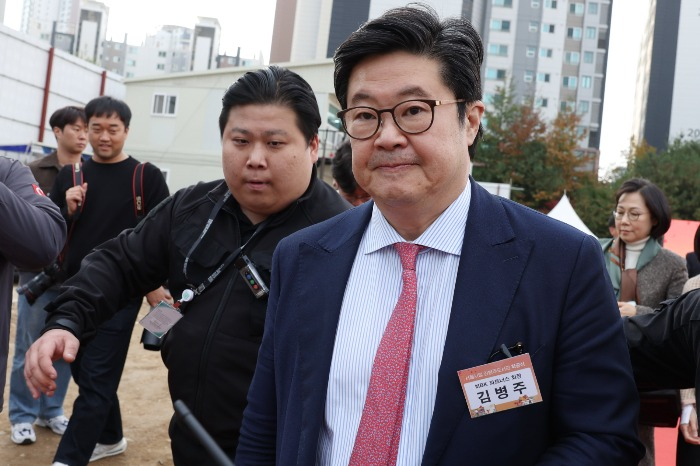
Further, foreign activist funds may exploit the law to target top management, pressuring them to implement measures aimed at boosting share prices, only to cash out shortly thereafter.
The report also noted that South Korea’s heavy inheritance taxes, reaching up to 60% -- among the highest in OECD countries -- weaken majority shareholders' control. Thus, family-owned companies undergoing generational leadership transition will become targets of foreign activist funds.
Write to Yeonhee Kim at yhkim@hankyung.com
Jennifer Nicholson-Breen
More To Read
-
Jan 31, 2025 (Gmt+09:00)
-
Jan 22, 2025 (Gmt+09:00)
-
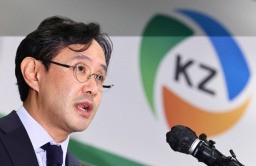 Mergers & AcquisitionsKorea Zinc, MBK-Young Poong alliance to fight over cumulative voting
Mergers & AcquisitionsKorea Zinc, MBK-Young Poong alliance to fight over cumulative votingJan 06, 2025 (Gmt+09:00)
-
 Corporate governanceHanmi Pharm’s chair poised to win management feud with her son
Corporate governanceHanmi Pharm’s chair poised to win management feud with her sonDec 26, 2024 (Gmt+09:00)
-
 Mergers & AcquisitionsMBK, Young Poong close in on majority of Korea Zinc
Mergers & AcquisitionsMBK, Young Poong close in on majority of Korea ZincDec 19, 2024 (Gmt+09:00)
-
 Mergers & AcquisitionsMBK’s Korea Zinc bid aimed at corporate governance, shareholder value
Mergers & AcquisitionsMBK’s Korea Zinc bid aimed at corporate governance, shareholder valueNov 05, 2024 (Gmt+09:00)
-
Oct 16, 2024 (Gmt+09:00)
-
 Leadership & ManagementCorporate management disputes spring up in S.Korea
Leadership & ManagementCorporate management disputes spring up in S.KoreaOct 14, 2024 (Gmt+09:00)
-
Oct 11, 2024 (Gmt+09:00)
-
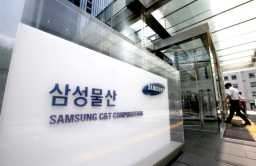 Shareholder activismSamsung C&T defeats activist funds in proxy battle
Shareholder activismSamsung C&T defeats activist funds in proxy battleMar 15, 2024 (Gmt+09:00)
-
 Shareholder activismISS backs Kumho Petrochem in family feud-triggered proxy war
Shareholder activismISS backs Kumho Petrochem in family feud-triggered proxy warMar 12, 2024 (Gmt+09:00)
-
 Bio & PharmaManagement dispute over S.Korea’s CTC Bio heats up
Bio & PharmaManagement dispute over S.Korea’s CTC Bio heats upApr 04, 2023 (Gmt+09:00)
-
 Shareholder activismJB Financial wins proxy fight against activist fund Align Partners
Shareholder activismJB Financial wins proxy fight against activist fund Align PartnersMar 31, 2023 (Gmt+09:00)




